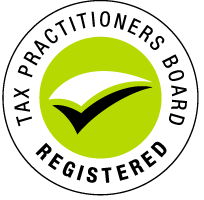
If you’re looking to boost your retirement savings, you may be eligible to make a super contribution of up to $300,000 from the sale proceeds of your primary residence.
On 1 January 2023, the age when eligible Australians qualify to make downsizer contributions was reduced from 60 to 55.
For those who qualify, it can be an opportunity to top up your super balance to capture potential tax-exempt future investment returns when you turn 60 and may be eligible to commence a retirement phase income stream. So, if you’re considering selling your home and using downsizer contributions, here’s what you’ll need to know.
Benefits of making a downsizer contribution
No Restrictions Super Boost
Downsizer contributions can provide a taxeffective way to boost your super balance. Not subject to the total super limit which restricts non-concessional contributions, you can continue contributing even if your balance is already above the limit.
Tax-free investment earnings
The earnings generated from your downsizer contribution can provide you with a tax-free source of income, assuming you have met the age requirements to move from the accumulation phase to the drawdown retirement phase.
No work test requirement
No work test or upper age limits apply to downsizer contributions, providing the flexibility to take advantage of the downsizer contribution at any time.
No requirement to buy a new home
If you sell your main residence and make a downsizer contribution to your super, you’re not required to buy a new home with the money you might make on the sale.
Caps Don’t Apply
Downsizer contributions aren’t limited by regular concessional and non-concessional contribution caps. That means you can direct up to $300,000 beyond any funds already in your super.
Greater Benefits for Couples
Partners can participate in downsizer contributions individually, where up to $600,000 of sale proceeds may be invested into super.
Rules and other considerations to be aware of
It’s important to note that while downsizer contributions are exempt from regular contribution caps, the funds will contribute towards your total super balance amount. They are also subject to the transfer balance cap (TBC). The TBC applies when funds are moved from your super account into a retirement pension, where income generated from investments has a 0% tax rate. This amount is currently capped at $1.7 million (but is increasing on 1 July 2023 – more on this below), and any amount above, including from the downsizer contribution, will still be taxed at the accumulation rate of 15%.
Additional considerations include:
- You must be aged 55 or over.
- You can’t have previously made a downsizer contribution to super.
- You should have owned the property for at least 10 years before selling and at some point in time, it was your primary residence.
- This only applies to Australian property and excludes caravans, mobile homes, and houseboats.
- A downsizer contribution must be made within 90 days of receiving the sale proceeds.
- A downsizer contribution form must be submitted to your super fund before or when making your contribution.
- The maximum amount of super savings that can be transferred into a retirement pension increased to $1.9 million on 1 July 2023. Some individuals, however, will see no change to their transfer limit.
- Downsizing your home may impact your age pension eligibility as the family home is generally not considered an assessable asset when calculating entitlements.
- The costs involved in selling a property and buying another one can be considerable.

Downsizer contributions are not taxdeductible and depending on your personal circumstances, various rules may apply. It’s important you get factual and experienced advice before making a significant decision. Let us know what you are considering and together, we can tailor your individual or couple plan to fulfill your retirement goals.



